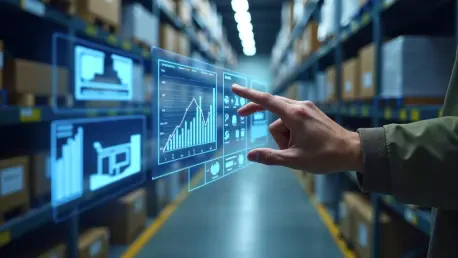In a world where fresh food producers constantly face the challenge of balancing sustainability with profitability, technology offers a transformative solution. How can industry leaders stay competitive in a market that demands innovation? The introduction of AI-powered solutions is offering fresh food producers, such as Finnebrogue, the tools they need to thrive in an ever-evolving landscape.
The Critical Need for Modern Technology in Food Production
The food industry is under immense pressure to deliver products that meet both consumer expectations and environmental standards. Efficient supply chain systems are crucial, yet many producers still rely on outdated methods. The shift toward digital transformation isn’t just a trend; it’s a necessity, especially as economic pressures and sustainability standards continue to rise. With supply chains being the backbone of food production, the integration of modern technologies becomes vital for ensuring economic and ecological sustainability, allowing companies to operate more efficiently while minimizing their environmental footprint.
Finnebrogue’s Strategic Shift: Leaving Spreadsheets Behind
Finnebrogue’s transition from traditional spreadsheet-driven planning to a data-driven platform marks a significant evolution. By collaborating with RELEX Solutions, they integrate a sophisticated, unified supply chain planning system. This change is not unique; many industries, including automotive and electronics, have adopted similar technological advancements, seeing notable improvements in efficiency, process optimization, and waste reduction. Such a shift illustrates the growing importance of data integration and real-time analytics in streamlining operations across various sectors, from food production to manufacturing.
Insights from Industry Leaders: AI as a Catalyst for Growth
The decision to implement AI solutions in supply chain management is not taken lightly. Executives at Finnebrogue highlight that overcoming technological adoption barriers was crucial in their decision-making process. A RELEX executive notes that “AI’s potential to leverage vast amounts of data for smarter forecasting and resource allocation” drove the initiative. Research consistently shows that companies employing AI realize benefits such as enhanced forecasting accuracy and inventory management. Insightful anecdotes from industry experts reveal how embracing technology, despite initial hurdles, has proven essential for progression and sustainability.
Practical Applications of AI in Food Production
Companies like Finnebrogue are pioneering AI strategies, such as demand sensing and waste reduction, which offer real-time insights into consumer behavior, allowing more agile responses to market needs. For food producers looking to emulate this model, starting with a phased approach to AI integration can offer a balance between technological investments and sustainable practices. Experts recommend prioritizing flexibility and scalability when implementing AI solutions, ensuring systems can adapt to future demands without excessive costs.
Paving the Way for the Future of Food Production
As Finnebrogue successfully integrated AI to enhance their supply chain, they set a precedent for others in the industry. By adopting intelligent systems, they reduced waste and improved resource allocation, establishing a more sustainable and responsive production process. Finnebrogue’s approach demonstrated how modern technology could address economic and environmental challenges, providing a roadmap for others aiming to innovate in food production.









